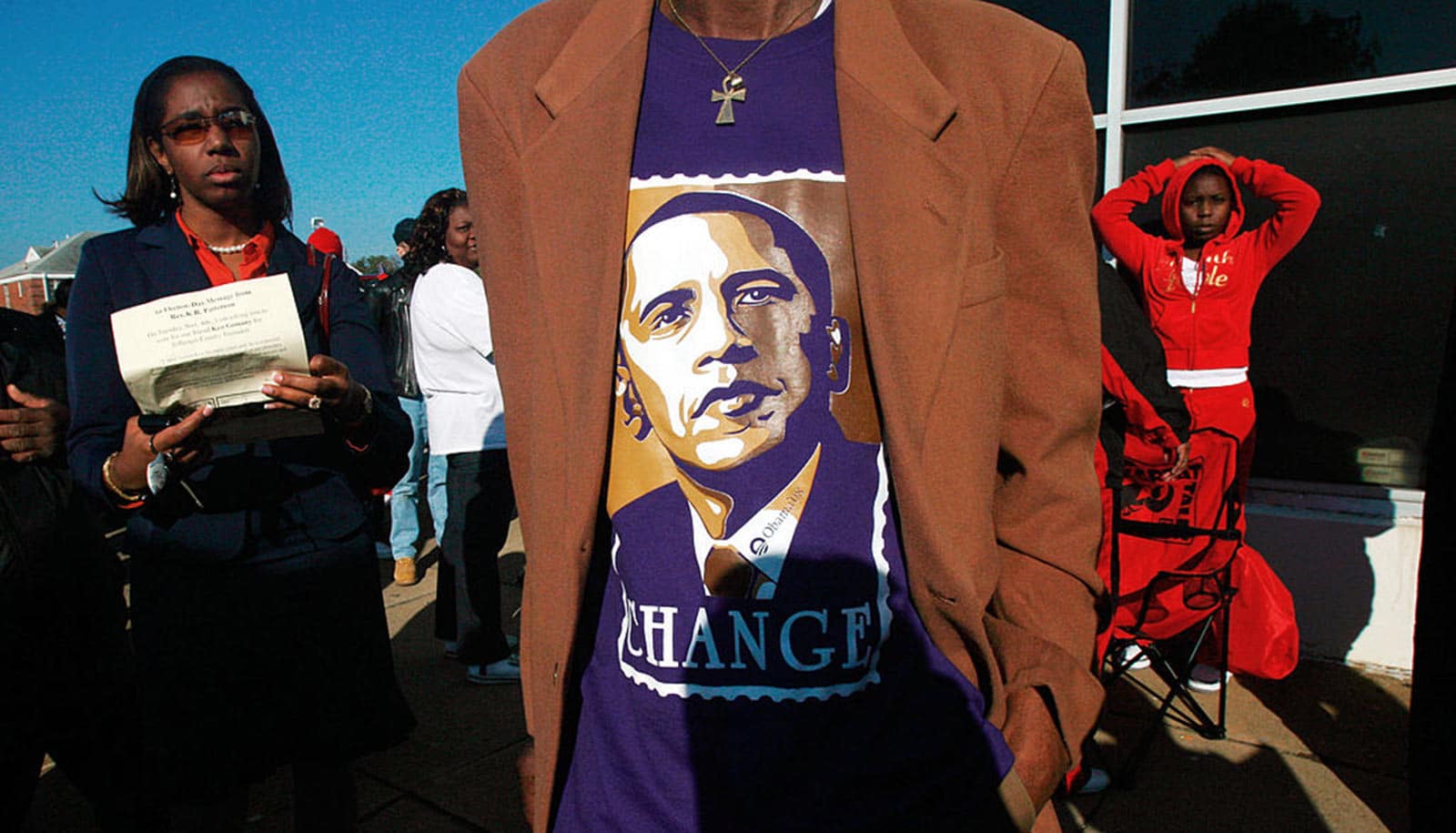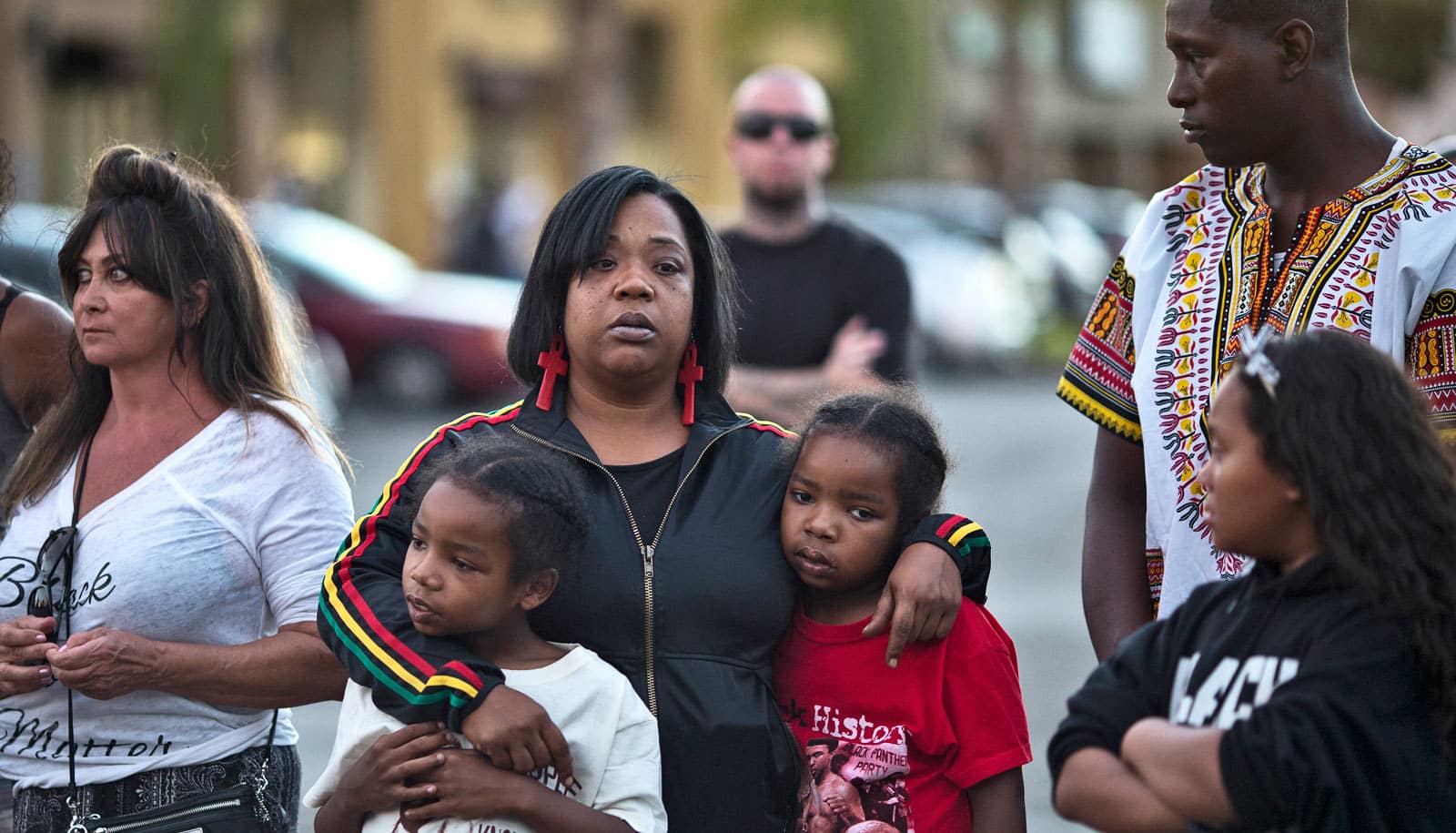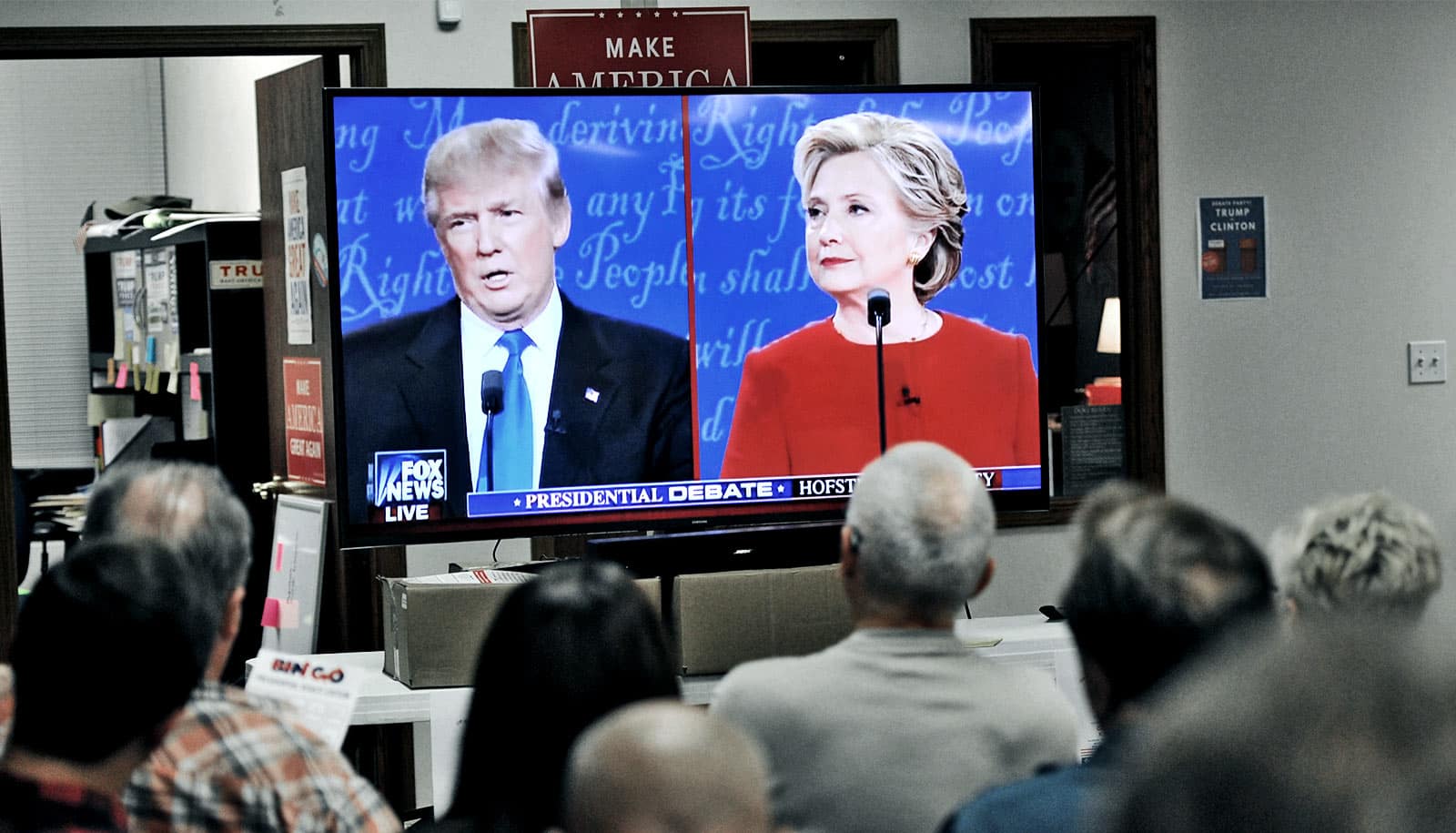Barack Obama’s 2008 election to president of the United States improved the mental health of black men, according to a new survey.
Sociologists typically focus on how negative events such as disasters, job losses, interpersonal discrimination, food insecurity, and the effects of positive events, says Tony Brown, a professor of sociology at Rice University.
“This is one major reason we pursued this study—we wanted to know if there were any health implications from this momentous occasion in US history,” he says.
For the study, Brown and colleagues examined black adults’ mental health for 30 days prior to and 30 days following the 2008 election.
The data came from the Behavioral Risk Factor Surveillance System, a nationally representative survey of 400,000 US adults evaluating different health aspects. The researchers found the election resulted in a statistically significant mental health benefit for black men.
One survey question asked, “Now, thinking about your mental health, which includes stress, depression, and problems with emotions, for how many days during the past 30 days was your mental health not good?”
On average, black men said they experienced about four poor mental health days leading up to the election. Following the election, that number dropped to three.
To demonstrate the significance of this finding, Brown referenced another study examining mental health harm caused when black adults were exposed to nearby police shootings of unarmed blacks. That study’s survey participants reported a 0.14-day increase in mental health problems.
“The study’s findings are important because we do not fully understand what factors protect mental health,” Brown says. “Specifically, the findings demonstrate that sociopolitical shifts matter for the health of black men and that everyday conditions of life act as social determinants of health.”
Black women, on the other hand, did not experience the same mental health benefit from the 2008 election. During the 30 days before the election, black women reported, on average, 4.6 poor mental health days. Following the election, that went up to five days.
While Brown could not pinpoint a specific reason for this slight mental health decline, he suggests a few possible explanations.
“Black women could have faced an internal conflict over not being able to vote for Hillary Clinton, a woman,” Brown says.”They could also have been concerned over the uptick in death threats just 10 days following Obama’s election, worrying about the new president-elect in the same way they would worry about their own husbands, fathers, or sons.
“They might also have been concerned over how President Obama would deal with discrimination against black men versus black women.”
Finally, Brown says black women may have worried that Obama’s election would result in a backlash in years to come, resulting in the country moving back toward a racist “status quo.”
As the 2020 presidential election approaches, health researchers should take shifts in the sociopolitical climate into account, Brown says.
“Groups of voters are symbolically empowered or disempowered by the biography, blind spots, and biases of those wining presidential elections,” he says.
Brown and his co-authors are interested in future work on the mental health impact of other election results, including the effect of Donald Trump’s 2016 presidential election on white women.
The study appears in Sociology of Race and Ethnicity. Additional coauthors are from Harvard University and Rice.
Source: Rice University


